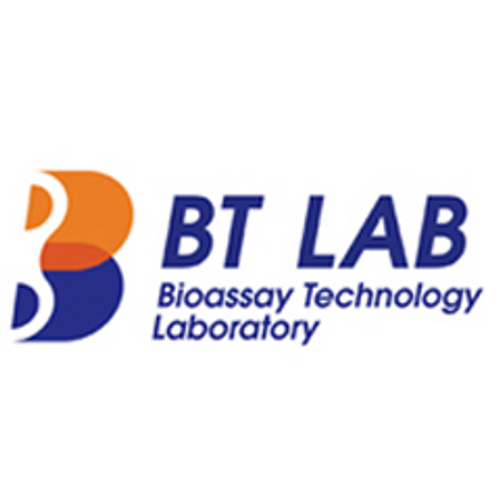Product Description
Human DNA (cytosine-5) -methyltransferase 3A (DNMT3A) ELISA Kit | AE62968HU | Abebio
Species Reactivity: Human (Homo sapiens)
Abbreviation: DNMT3A
Alternative Name: DNMT3A2; M.HsaIIIA; DNA MTase HsaIIIA|DNA cytosine methyltransferase 3 alpha|DNA cytosine methyltransferase 3A2|DNA methyltransferase HsaIIIA
Application: ELISA
Range: 0.156-10 ng/mL
Sensitivity: 0.061 ng/mL
Intra-Assay: ≤5.1%
Inter-Assay: ≤7.4%
Recovery: 0, 88
Sample Type: Serum, Plasma, Other biological fluids
Detection Method: Sandwich
Analysis Method : Quantitive
Test Principale: This assay employs a two-site sandwich ELISA to quantitate DNMT3A in samples. An antibody specific for DNMT3A has been pre-coated onto a microplate. Standards and samples are pipetted into the wells and anyDNMT3A present is bound by the immobilized antibody. After removing any unbound substances, a biotin-conjugated antibody specific for DNMT3A is added to the wells. After washing, Streptavidin conjugated Horseradish Peroxidase (HRP) is added to the wells. Following a wash to remove any unbound avidin-enzyme reagent, a substrate solution is added to the wells and color develops in proportion to the amount of DNMT3A bound in the initial step. The color development is stopped and the intensity of the color is measured.
Product Overview: CpG methylation is an epigenetic modification that is important for embryonic development, imprinting, and X-chromosome inactivation. DNMT3A encodes a DNA methyltransferase that is thought to function in de novo methylation, rather than maintenance methylation. The protein localizes to the cytoplasm and nucleus and its expression is developmentally regulated. Alternative splicing results in multiple transcript variants encoding different isoforms.The mouse genes, termed Dnmt3a and Dnmt3b, show little sequence similarity to mouse Dnmt1 and Dnmt2, and masc1 from Ascobolus. The Dnmt3a cDNA encodes a protein of 908 amino acids. The human DNMT3A and DNMT3B cDNAs are highly homologous to the mouse genes. Dnmt3a and Dnmt3b transcripts were abundantly expressed in undifferentiated embryonic stem cells.
Stability: The stability of ELISA kit is determined by the loss rate of activity. The loss rate of this kit is less than 5% within the expiration date under appropriate storage condition. The loss rate was determined by accelerated thermal degradation test. Keep the kit at 37°C for 4 and 7 days, and compare O.D.values of the kit kept at 37°C with that of at recommended temperature. (referring from China Biological Products Standard, which was calculated by the Arrhenius equation. For ELISA kit, 4 days storage at 37°C can be considered as 6 months at 2 - 8°C, which means 7 days at 37°C equaling 12 months at 2 - 8°C) .
 Euro
Euro
 USD
USD
 British Pound
British Pound
 NULL
NULL








